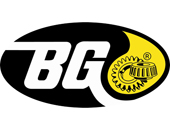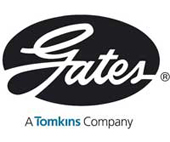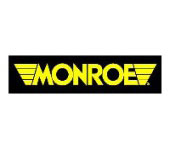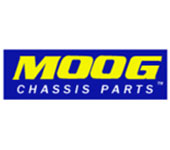Repair Tips You Can Trust From Legacy Automotive Group LLC
We have created a trustworthy resource that delivers monthly high caliber auto maintenance tips, superior fuel savings ideas and best in class auto repair guidance. For more help, ask one of our pros!
What Happens During An Oil Change?
2025-03-12
Ever wonder what exactly happens when you bring your car in for an oil change? Well, it's not just about switching out the old for new-it's about giving your car a little TLC to keep it running happily. Let me walk you through what we do when you drop your car off for an oil change:
1. Getting Started
First off, we get your car set up in our workspace, lifting it up to get a good look underneath. This is where all the magic happens!
2. Out With the Old
We start by removing the old oil from your car. It's kind of like letting out the bathwater after a long soak. We make sure to catch all that used-up oil and dispose of it properly because we care about the planet just as much as we care about your car.
3. Fresh Filter
Next up, we swap out your old oil filter. Think of the filter as your car's kidney-keeping the oil clean so your engine can run smoothly. A new filter means your engine gets to enjoy fresh, clean oil, which is essential for its health.
4. In With the New
Then comes the fresh oil! We fill your engine with the type and amount of oil recommended by your car's manufacturer. This is like a refreshing drink for your engine, and it needs it to perform its best.
5. Checking It Twice
After we've got the new oil in, we'll start your car to make sure the new oil is settling in nicely. We look for any leaks and check the oil level to make sure it's just right.
6. Final Checks
Before we call it done, we do a final sweep to make sure we haven't left any tools under the hood and that your car is as neat as when you brought it in. We might even check other fluids and your air filter to ensure everything is in top shape.
Why Regular Oil Changes Are a Must
Getting regular oil changes is like ensuring your car has clean lungs-necessary for it to breathe and operate efficiently. It reduces wear and tear by lubricating the engine's moving parts, which helps you avoid bigger, scarier repairs down the line.
Handy FAQs About Oil Changes
How often should I get an oil change?
Most cars need an oil change every 3,000 to 5,000 miles, but check your owner's manual to be sure.
Can I upgrade to synthetic oil?
Absolutely! Synthetic oil is great for most engines and might even be recommended depending on your car and where you live.
How do I know it's time for an oil change?
Keep your ears open for unusual engine noises and keep an eye on the oil level and color via your dipstick. If your car tells you it's time with a light on the dash, don't wait too long!
Regular oil changes keep your car's engine young at heart, ensuring it stays reliable for all your road trip adventures and daily commutes. So next time you're due, come on by, and we'll take good care of you and your car!
5 Indicators Your Suspension Requires a Check up
2024-03-05
A vehicle's suspension system comprises various components, including springs, shock absorbers, ball joints, and struts, among others. Ever wonder if your suspension needs an inspection? Here are five indicators to watch out for, helping you decide whether your suspension needs any work done:
1. Noticeable Drifting or Pulling While Turning:
- During turns, if you experience unusual pulling or drifting, it could signal potential suspension issues. A car with suspension problems can pull to one side or drift out of its lane, even when the steering wheel is held straight. This can be caused by worn or damaged suspension components affecting wheel alignment.
2. Uneven Tire Tread Wear:
- Uneven tire tread wear, characterized by sporadic bald spots instead of a uniform pattern, may indicate significant suspension problems. If you notice uneven wear patterns on your tires, particularly excessive wear on the inside or outside edges, it could indicate suspension issues. Misaligned wheels or worn suspension components can cause uneven tire wear in a vehicle.
3. Sensation of Dips or Dives Upon Braking:
- Experiencing lurching or dips and dives when braking may indicate worn-out shock absorbers, a vital component of your vehicle's suspension system. These symptoms suggest that your shock absorbers are no longer effectively dampening the movement of your vehicle's springs, affecting its stability and braking performance. To address this issue, it's crucial to have your shock absorbers inspected and replaced if necessary.
4. Difficulty in Steering:
- Experiencing difficulty in steering your vehicle could be a sign of underlying suspension issues. Proper steering functionality is essential for safe and effective maneuvering on the road. If the issue is left unaddressed, your ability to make turns will be severely impacted. Seeking assistance from a reputable car repair service is advisable to diagnose and address any suspension-related concerns promptly.
5. Strange Noises:
- This includes clunking, knocking, or creaking sounds when driving over bumps or during steering maneuvers. Noises such as these can indicate problems with suspension components like bushings, ball joints, or control arms. These noises may suggest loose or worn parts that need expert attention sooner rather than later.
Require Suspension Work?
At Legacy Automotive Group LLC, we're your go-to specialists for suspension inspection and repairs. We understand how crucial a healthy suspension is for a smooth and safe driving experience. That's why we offer comprehensive services to diagnose and fix any suspension issues your car may have, ensuring a comfortable and confident ride on the road.
Visit us today at 121 N Viking Vie, Lee, IL or call at 815-824-2732 for a complete suspension inspection and get back to enjoying your ride!
Monday Maintenance Update - Volume 2
2023-05-01
Oil Changes and Changes in Oil - By Nick Little, Shop Owner of Wrigley's Garage and Dunn's Repair
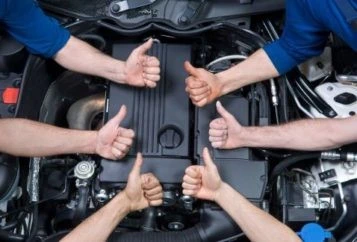
In this edition of our Monday Maintenance Update, I'd like to share with you some basics of the oil change routine and its effect on the industry as a whole. I will also share its short- and long-term effects on the consumer.
When engines were first put in cars as a mode of transportation, they didn't include an oil filter. It wasn't until the 1950's that they were widely implemented, and at that time oil was purely crude oil derived. Synthetic oils were created by the Germans during the WWII era because allied forces had restricted oil imports for the war effort. Synthetics would become commercially available and are now required in the vast majority of vehicles.
Most of us grew up in an era where 3,000 miles was the standard oil change interval. This was typical up until the early 2000's when car makers started to move that out to 5,000, 7,500 and eventually 10,000 miles.
This sounds exciting because it seems as though there will be savings associated. In reality that isn't necessarily the case. There are many factors to consider when deciding when to change your oil.
How, when and where you drive are just a few aspects of the decision-making process. The general consensus among dealer and privately owned repair facilities is that 5,000 miles is best. This schedule revolves around the aspects of vehicle care like tire rotation, steering, suspension and brake system inspections, usage patterns and other critical fluid system service intervals.
I'm a big believer of the old adage "the proof is in the pudding". Since the auto manufacturers have started increasing oil change intervals, every single auto maker has been involved in class action law suits and customer satisfaction recalls stemming from widespread engine failure - even the companies that are most known for engine longevity. That being said, we have a combined total of over a half-million miles on our two primary loaner cars with zero breakdowns, using our basic maintenance plan.
Given the auto makers are building a better car than ever before, you as the consumer are in a position to maximize the return on your very significant investment using a well thought out maintenance plan. Here's hoping you get to enjoy 200K, 300K, or even 400K miles as many of our clients and friends have. See you on the next one!
Monday Maintenance Update - Volume 1
2023-04-01
General Maintenance- By Nick Little, Shop Owner of Wrigley's Garage and Dunn's Repair

One of my earliest memories was rolling around in the driveway with my Grandpa, changing the oil in his '78 Chevy pickup - doing my best to figure out the difference between a 9/16" wrench and a flat blade screwdriver.
I remember grandpa referring to 100,000 miles like it was the end of the line for a car back then. A lot has changed over the years, vehicle lifespan being one of the biggest changes, due to EPA regulations, vehicles are built to a much higher level of precision and that has manufacturers outlining much longer maintenance intervals than the 3,000-mile oil changes we grew up with.
Some intervals have even surpassed the 10,000-mile mark! As a matter of fact, it is not unheard of for vehicle lifespan to be double or even triple the 100,000-mile mark without a single break down. That would certainly leave Grandpa shaking his head in disbelief!
While it is clear that I grew up in a different era of automobiles, I have always kept my finger on the pulse of what is happening in the industry, and more importantly, what is about to happen.
My Grandpa brought me up to make things last and do it on a budget, and I've made it my life's work. Many of my other childhood memories are of broken cars and that is something we work diligently to avoid for our clients and friends.
ADVANTAGES OF PROFESSIONAL SERVICE
2023-03-01
Wrigley's Garage takes your safety and your vehicle's health very seriously. That is why we perform our 44 Point Inspection with each oil change. It is our job to present you with the facts about the condition of your vehicle. This is just one of the many advantages of using a professional mechanic.
So let's spend a moment talking about the 44 Point Inspection AKA your vehicle's "health report". Wrigley's Garage provides you with a digital vehicle inspection typically by text. The purpose of this report is to provide you with images and recommendations in order to give you a chance to see and understand exactly what is wrong with your vehicle before deciding to approve a repair or service recommendation.
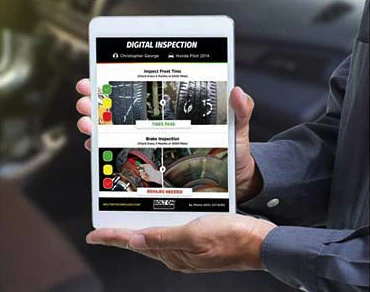
Did you know that cars are made up of approximately 30,000 parts?
There are so many different parts in a car, it is almost impossible for the average car owner to know all of them. That's why it is so important to hire a knowledgeable technician to repair your car when there is a problem.
There is a lot of discussion about the value of professional service. Many think that professional service is overpriced and doesn't offer advantages that outweigh the cost differences. At Wrigley's we strive to help our customers make a well-informed decision, and this list is provided in that interest. We hope it helps.
- Accuracy-We have the knowledge, supplies, tools and experience to get the job done quickly and accurately.
- Records-We keep precise records of what has and has not been done-thus saving your hard-earned dollars.
- Continuity of service-Having the same, well-trained eyes under the hood of your car or truck is important, consistency matters.
- Longevity-It takes focus and understanding to ensure a vehicle keeps you on the road for many years without issue.
- Convenience-Loaner cars, pick-up/delivery, service reminders and fast turnaround times ensure you don't have to waste precious time on the weekend acquiring materials and performing the work, or in a waiting area wishing you were doing something you love.
- Overall Value-there are many things we address while working with our customers vehicles for free or with minimal charge while doing routine oil changes and maintenance, and with little price difference than you can do the job yourself
- Relationship-when you need us, we are here for you. No delays or run-around, just results. We are here to help you every step of the way in your vehicle's journey.
- Warranty- The quality parts we use come with the longest warranties in the business, should the need ever arise, which ensures you only pay to do the job one time
Your trust is extremely important to us. We do not make unnecessary recommendations; we base our recommendations on your vehicle's health inspection with your safety being the number one priority and your vehicle's required maintenance next in order of priority. Your vehicle is typically your second largest investment. You can trust Wrigley's Garage to do a quality job at a fair price. Our staff cares about you and your vehicle.
TEXT US AT 815-566-4232 OR CALL 815-824-2732 TO SCHEDULE YOUR APPOINTMENT.Preventive Auto Maintenance For Severe Driving
2023-02-16
Reduce the Effects of Severe Driving On Your Car
Are you an "aggressive" driver? Everyone answers "no" to this question because "aggressive" has become associated with road rage incidents. Today we replace "aggressive" with the word "severe." Severe driving is often unavoidable.
8 Types of Severe Driving
- Moving quickly through curvy roads in and around Lee
- Traversing gravel or sandy roads
- Driving in extreme heat, on icy roads or roads with a deep snowpack
- Executing multiple lane changes in stop-and-go traffic
- Consistently driving 10 mph or more over the speed limit
- Short time dependent commutes around Lee
- Truncating a safe following distance resulting in frequent braking
- Driving with heavier loads such as a cargo or passenger van or towing a trailer
While most motorists have experienced "severe" driving on occasion, for other drivers it is an unavoidable part of their daily commute. If you are a severe driver, take extra care to avoid excessive wear and tear on your car, SUV or truck. Severe drivers are more likely to experience an inconvenient breakdown.
Increase Your Preventive Maintenance Intervals On These Six Important Items:
- Replace your motor oil and oil filters
- Top off or replace your coolant
- Have your brake pad thickness and brake fluid inspected regularly
- Check your tire tread depth
- Replace your windshield wipers
- Monitor your transmission and steering fluid
Other ways to avoid excess wear and tear on your car from severe driving involve slowing down, avoiding quick starts and stops, and removing heavy items left in your car's trunk or truck bed. Remember gas mileage decreases rapidly when you drive above 60 mph.
Stop by Legacy Automotive Group LLC in Lee and let our pro mechanics help you develop a preventive maintenance plan that matches your driving style. Call today at 815-824-2732 or come by the service center at 121 N Viking Vie, Lee, IL, 60530.
What should you do if your vehicle overheats?
2023-02-01
You are driving down the road and you notice your temperature gage rising. Or worse yet you notice steam coming from under the hood.
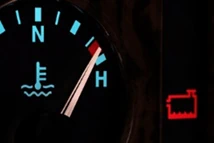
Should I continue to drive my vehicle if it is overheating?
The short answer is NO. Engines can only take so much heat so when the systems that control the engine temperature fails you can expect some of the following things may happen:
Bursting hoses, warped cylinder heads, broken head gaskets and other sensitive engine component damage such as sensors, belts and wiring.

More than half of the total of number of faults in the operation of an automobile engine is associated with the loss of coolant.
DO:- Pull over as soon as safely possible
- Turn off the vehicle
- Call a tow truck and have your vehicle towed to your mechanic
- Let the engine cool down at least 30 minutes before attempting to open the hood
- Operate the vehicle for any longer than necessary to get safely pulled over
- Add cold water to the radiator
- Ignore the problem

How Can You Prevent Overheating?
The best way to prevent overheating is with regular inspections and maintaining your vehicle's cooling system. Checking for potential leaks as well as checking hoses, the coolant level and the condition of the coolant and thermostat is part of Wrigley's Garage 44 Point Inspection.
Kelley Blue Book recommends flushing the coolant system and replacing it with fresh fluid every two years or 30,000 miles as a good rule of thumb. Flushing helps to prevent damage and extends the life of your vehicle.
Flushing your coolant at home is not recommended as it is extremely toxic to humans and pets. Even a small amount can cause illness. It also requires proper disposal of the old fluid.
Does the type of coolant matter?
Absolutely! Coolant provides multiple functions in your vehicle. It transfers heat out of the engine. It protects your engine from colder weather. It is a corrosion inhibitor. It lubricates the water pump and it reduces foaming. Using the OEM recommended coolant ensures that the specific formulation of the coolant aligns with your engine's components.
In Conclusion overheating can cause major damage to your vehicle resulting in costly repairs. Continuing to drive and ignoring the warning signs will only cause more damage. Regular inspections and preventative maintenance are key factors in protecting your investment.
5 Regular Auto Maintenance Items That Save Real Money
2023-01-15
Save Money And Time With Simple Preventative Maintenance From Legacy Automotive Group LLC
A little auto maintenance goes a long way toward protecting your wallet from high-cost auto repairs in the future.
Schedule regular auto maintenance for these five essential systems
- Brakes, including brake pads, brake fluid, calipers and rotors
- Tires, including tread wear, proper inflation, front end alignment and balancing
- Belts, including serpentine, starter and timing belts
- Hoses, including cooling and radiator hoses
- Fluids, including oil, transmission, steering, brake, antifreeze and wiper fluids
At Legacy Automotive Group LLC in Lee we keep your car running smoothly and efficiently to save you both time and money in and out of the repair shop. Many drivers overlook how services such as a simple oil change can increase fuel efficiency and save you money at the gas pump.
Come by Legacy Automotive Group LLC at 121 N Viking Vie, Lee, IL, 60530 and discuss an annual vehicle maintenance plan with us today. Spreading maintenance items out over the course of the year can help make auto maintenance expenses more affordable. Ask us about Legacy Automotive Group LLC coupons and rebates on items such as tires for additional savings.
Call Legacy Automotive Group LLC today at 815-824-2732.
Should I Replace My Car's Spark Plugs?
2022-10-01
The Two Instances When You Should Always Replace Your Spark Plugs
Let's talk spark plugs. A common question we hear at Legacy Automotive Group LLC is, "Should I replace my spark plugs?"
A spark plug performs a critical task for your vehicle's engine. Without a spark plug your car or truck's engine cannot work. Properly working spark plugs also deliver added fuel efficiency. Most owners manuals say to replace the spark plugs every 80,000 to 100,000 miles. In many cases spark plugs last longer than the driver's ownership of the car.
So, when should you replace your spark plugs?
- If you just purchased a used vehicle
- At least every 80,000 miles
Spark plugs are one of the hardest working parts of a vehicle. If you just purchased a used car, it is best to go ahead and replace the spark plugs. You have no idea if the previous owners were "severe" drivers. A spark plug can fire 400 times per minute per cylinder or 1,600 times a minute on a four-cylinder engine. Severe driving can place even higher demands on the spark plugs and engine.
Many used car dealers boast an extensive multi-point inspection plan prior to the sale of any car but many of these plans don't cover spark plug integrity. Because a failed spark plug can mean disaster for your new purchase it is best to get them replaced by the qualified technicians at Legacy Automotive Group LLC in Lee.
At Legacy Automotive Group LLC we recommend replacing spark plugs before they reach the 80,000-mile mark. Many car owners delay spark plug replacement until the engine starts "missing." An engine that is "missing" will typically result in a jerking feeling when accelerating. Spark plugs that are severely worn out will create a pinging or knocking sound. These fouled, worn-out spark plugs can lead to extensive engine damage that is expensive to fix. Therefore, replacing spark plugs before they reach the 80,000-mile mark is very important.
Three Indicators Your Spark Plugs Need To Be Replaced
- Rattling, pinging or knocking noises when accelerating
- Missing, hesitating or jerky feeling when driving
- Slow acceleration or chugging
Sluggish and reduced performance also causes poor fuel economy. Save money at the pump by taking care of your vehicle's spark plugs.
Come by Legacy Automotive Group LLC in Lee if you just bought a used car or your vehicle is approaching the 80,000-mile mark to have your spark plugs replaced by one of our qualified pro mechanics. Call today at 815-824-2732 or stop by our service center at 121 N Viking Vie, Lee, IL, 60530.
Don't Forget to Replace Your Car or Truck's Belts
2022-10-01
Remember to Change Your Belts
Drivers in Lee are busy and it is easy to forget that belts are tirelessly working to keep your engine running. A worn-out belt is a break down waiting to happen. Avoid being stranded on the side of the road and get your belts inspected each time you get an oil change at Legacy Automotive Group LLC in Lee.
Your car or truck's belts are essential for many of the vehicle's critical components such as water cooling, air conditioning and the alternator. Serpentine belts are used to turn the alternator, power steering and air-conditioning compressor. Often when serpentine belts brake your vehicle will stop working completely.
Come to Legacy Automotive Group LLC to get worn or frayed serpentine belts replaced. Replacing belts when cracked, frayed or showing signs of excessive wear is very inexpensive when compared to having your car or truck towed to our repair shop.
Listen for signs of belt problems. Noise like rattling or slipping in the belt system is a sign of wear. Use your nose to tell you if a belt problem is imminent. The smell of burnt rubber can indicate a slipping belt.
At Legacy Automotive Group LLC when we replace a worn serpentine belt, we check all the components in the serpentine system such as tensioners and pulleys. A typical serpentine belt replacement is 60,000 to 90,000 miles.
Why risk being stranded when a bad belt can be diagnosed with simple routine maintenance? Get Legacy Automotive Group LLC to replace your car or truck's serpentine belts as directed by your owner's manual and avoid the hassle and expense of a sudden breakdown.
Call Legacy Automotive Group LLC in Lee today at 815-824-2732 to schedule regular maintenance such as belt inspection.











